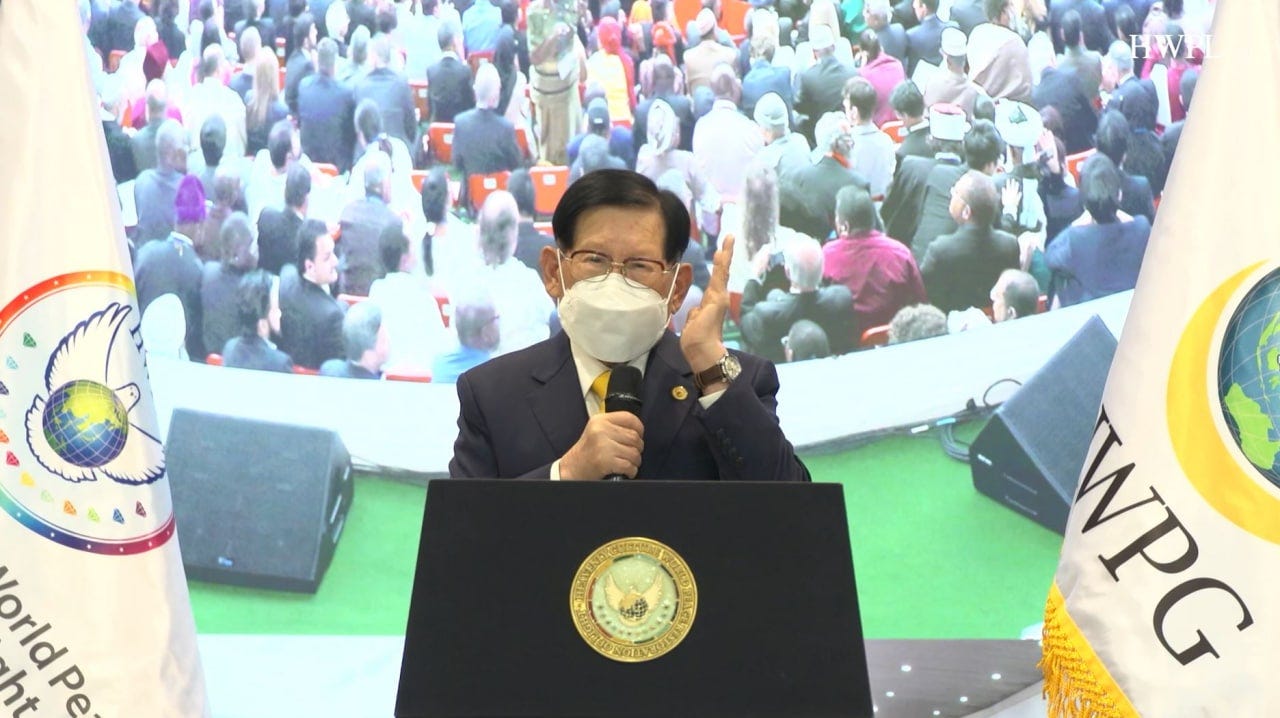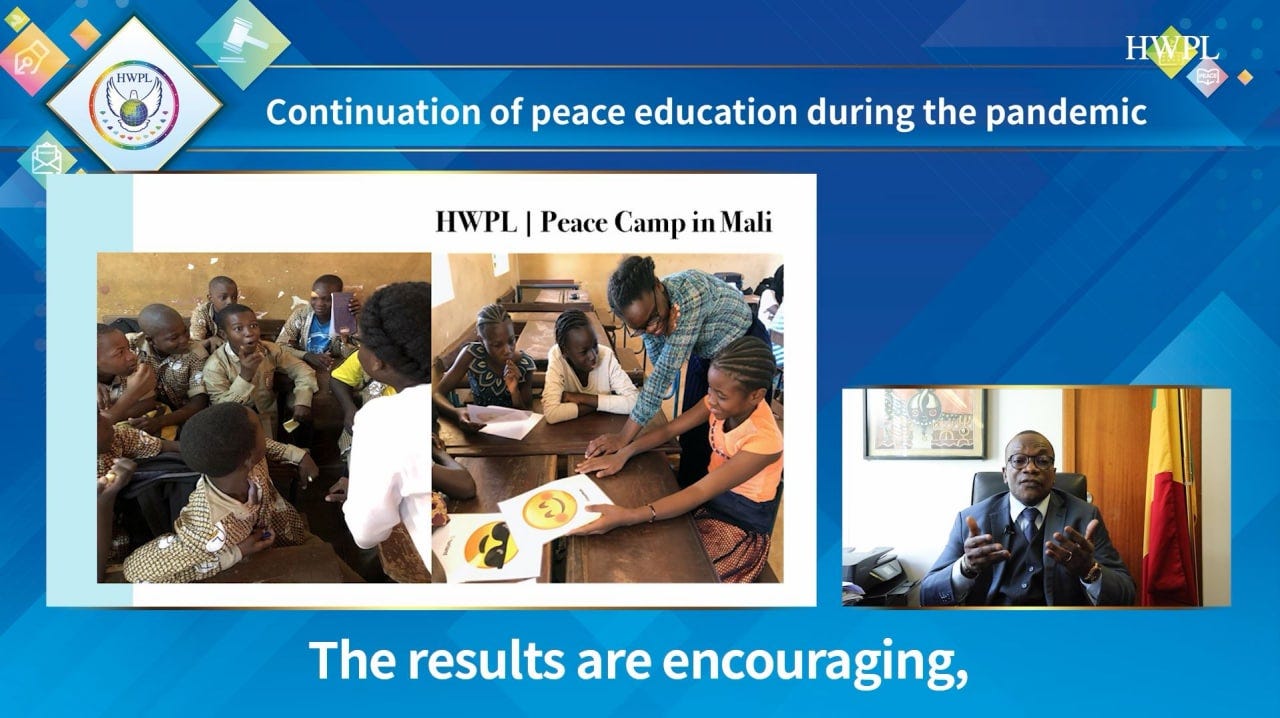HWPL Reaffirms Commitment to Achieving World Peace
HWPL's founder, Chairman Man Hee Lee shared that the desire to achieve peace was not dampened by the COVID-19 pandemic.
On March 14, over 1,200 people in 132 countries from all sectors of the society participated in the webinar to celebrate the 5th Annual Commemoration of the Declaration of Peace and Cessation of War (DPCW).
Heavenly Culture, World Peace Restoration and Light (HWPL) held the webinar as a platform to share the organization’s direction and case studies of different sectors cooperating across the world as peace messengers held the webinar.
Guests included the government, women leaders, youth groups, religious leaders, press, and members of civic society.
The DPCW reaffirms the peace-based principles contained in various international law documents, such as the UN Charter and the Universal Declaration of Human Rights.
It includes principles of peacebuilding such as the prohibition of the use of force, development of friendly relations, and peaceful dispute settlement.
It also emphasizes international cooperation based on interfaith dialogue and civic participation to create a culture of peace.
Since the DPCW’s proclamation on March 14th, 2016, the DPCW-based peacebuilding model went on to receive government recognition and support for inter-religious dialogue, peace education, youth and women’s peace activities.
HWPL's founder, Chairman Man Hee Lee shared that the desire to achieve peace was not dampened by the COVID-19 pandemic.
“The work to submit the DPCW is underway. However, the COVID-19 pandemic affected the entire global community, which led to a brief stop in the process but our focus, and collective determination for building a world of peace stays strong. I am confident no one could reject such a cause.”
As a member of the International Law Peace Committee (ILPC) that drafted the DPCW, Professor Ciaran Burke explained the background of how the DPCW was founded on “the conviction that judicial and other dispute resolution measure can replace the role of war with the rule of law.”
He also stressed the kernel of the DPCW “is the envisioned effect of the DPCW is cumulative to scale up the moral and political responsibility of world leaders by crystallizing the legal obligations of their government thereby bridging the gap between law and politics.”
In 2019, the International Peace Youth Group (IPYG), an affiliate of HWPL, began the Peace Letter Campaign as an effort to compel national leaders to advocate for the adoption of the DPCW by the UN General Assembly in the form of a binding resolution.
Speaking on behalf of the youth advocates, Mr. Reuben Sapetulu, Deputy Secretary Agent for the United Nations Youth Association of Zambia (YUNA Zambia), said, “I participated in the delivery of 3,000 peace letters to the minister of justice in Zambia for the DPCW proposal. My commitment is simply because I agree that the DPCW is an effective way to bring a cessation of war and world peace.”
Up to date, IPYG have sent around 200,000 letters to the heads of state from all UN member states through the Peace Letter Campaign.
HWPL is a peace NGO in Special Consultative Status with the UN ECOSOC and associated with UN DGC.
To cease all wars and create a peaceful world as a legacy for future generations, HWPL has been carrying out three main peace initiatives - international law for peace, interfaith dialogue meeting, and peace education.





